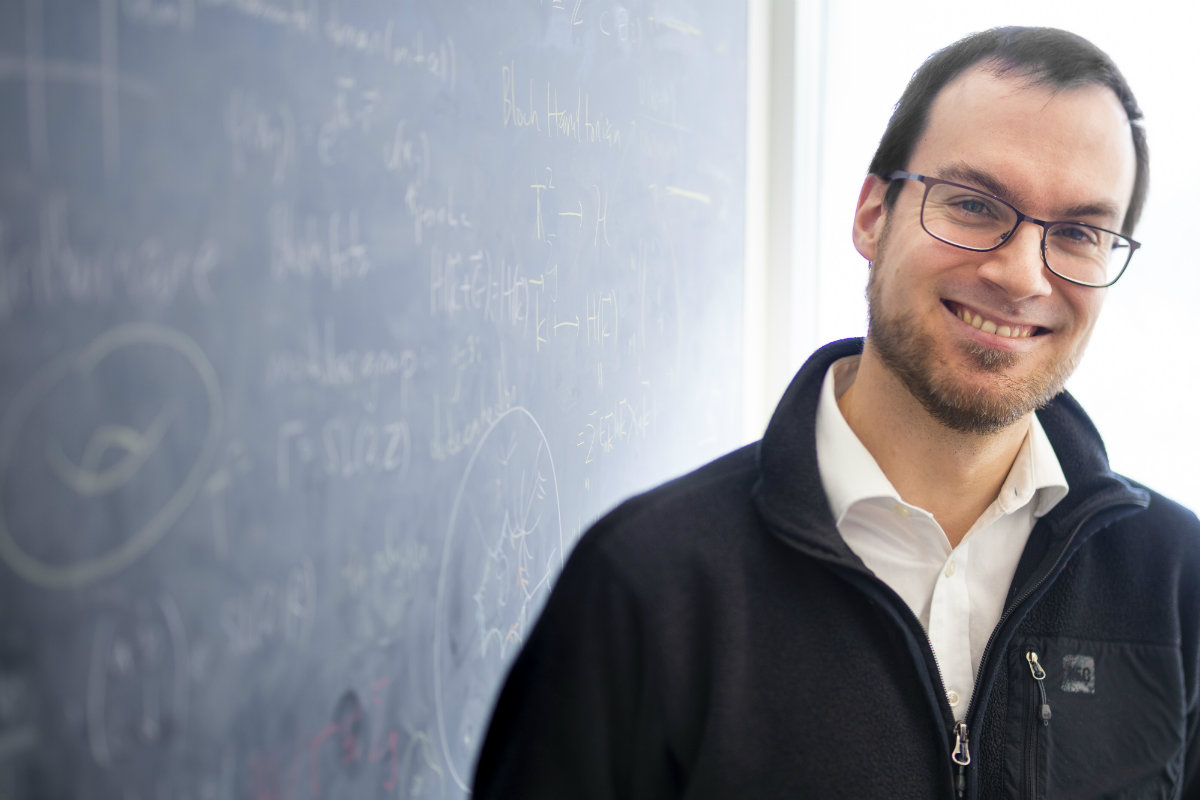
Joseph Maciejko is an assistant professor in the Department of Physics and Canada Research Chair in Condensed Matter Theory. Photo credit: John Ulan
"When you boil things down to their essence, you notice that what looks very disparate at the beginning is actually connected," said condensed matter physicist Joseph Maciejko. "Progress is often made by making connections between different fields. Some of the most interesting results in science come from building bridges between two things."
For Maciejko, inspiration comes from these connections-whether they are between physical phenomena or across disciplines in the sciences. Maciejko is an assistant professor in the Department of Physics and Canada Research Chair in Condensed Matter Theory. His area of expertise? Emergence.
"The surprising outcome about matter is that the whole is more than the sum of its parts," Maciejko explained. "The basic idea of emergence is that there are phenomena that appear when we put many particles together that could not have been possible as individual components. I am trying to predict and discover new phenomena in materials that result from this type of collective behaviour."
One example of emergence is superconductivity, a key to many modern technologies, ranging from MRI machines to bullet trains. The topic of Maciejko's interest, however, is topological insulators, with potential applications to low-power electronics and high-speed information transfer "The inside of a topological insulator does not conduct electricity," said Maciejko. "But the surface conducts electricity at a high rate. Most materials have one property or the other, but not both." Materials that combine these two components would prove highly useful for developing technology and in the field of engineering.
Another fascinating feature of topological insulators? Insulators were once considered boring and not particularly useful-from a fundamental physics point of view. As soon as researchers understood that certain insulators had special topological properties, potential and fascinating new applications came to light.
And it's just this type of unexpected connection and discovery that keeps the physicist passionate about teaching and interdisciplinary science. "Diverse perspectives are a critical part of keeping science vibrant and relevant.
Award-winning instructor
One such perspective is that of his students. In 2018, Maciejko won the Faculty of Science Student's Choice Award, a student-selected teaching award for his work as an instructor for two graduate courses and a fourth-year undergraduate course on quantum mechanics.
"I love teaching quantum mechanics because it is a return to fundamentals," he said. "It's so valuable to revisit information that we learn as undergraduates, that many of us think we know inside out. When you're forced to teach it and come up with examples, you realize that maybe there are things you don't understand as well as you thought you did, and you can generate some ideas for research."
Maciejko is also an instrumental member of UAlberta's Theoretical Physics Institute. The institute connects physicists and mathematicians from the University of Alberta. The institute also hosts seminars from researchers outside of the university-yet another means of establishing and building connections transcending the scientific world beyond building, borders, and disciplines.
Learn more about Maciejko's teaching, research, and recent publications.